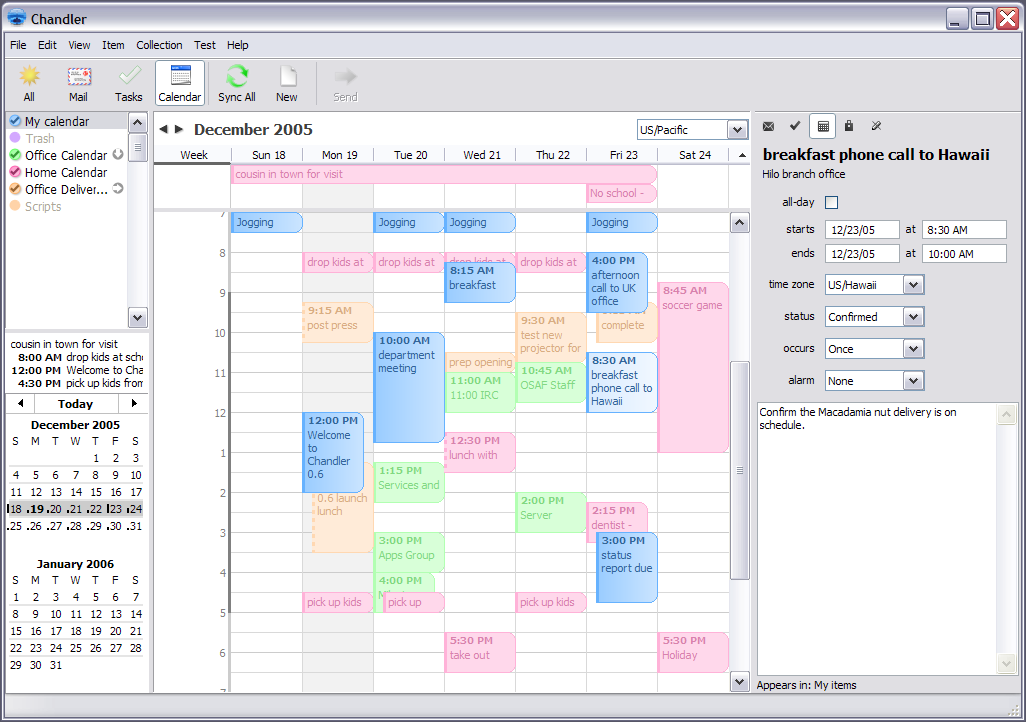Personal information management (PIM) is very important in the organization because it is individuals that make up the organization. If each employee can efficiently find information which applies to projects to projects he/she is working on then the organization as a whole should be able to work better as a whole. Often organizations can only go as fast as their slowest member and if focus is placed on PIM then even the slowest membe r should be able to get things done at a reasonable pace.
r should be able to get things done at a reasonable pace.
PIM within a business can be a tricky thing because the information that each individual member has can have a large effect on others in the organization or just the organization as a whole. For example, it may be the vice president's personal information that he has a dental appointment at 3:00 pm and will be leaving early. This can have repercussions throughout the organization if a weekly meeting which is headed by the VP normally takes place during his dental appointment. So if the VP updates his calendar with his appointment it is important for the rest of the business to know the VP will not be present at the meeting. Clearly if the VP is the heads the meeting he should probably tell people the meeting time will need to be changed. However, what if the VP forgets to tell somebody? If the company has access to the VP's information then it would be less of a problem. Each organization needs to have a discussion about where the line is drawn between strictly personal information and personal information which has a direct effect on the organization.
The publishing of personal information is being more prevalent than ever. By publishing I really mean to let all of the public have access to it. With the growing popularity of social networks such as MySpace and Facebook a complete stranger has the opportunity to learn a great deal of personal information about an individual. The paper by Lampe, Ellison, and Steinfield discusses Facebook. Specifically the researchers were looking for a connection between completed fields in a profile and number of friends. The hope was to determine if what it is that motivates connections between friends.
Through the study of 30,773 profiles the researchers conclude that users will have more friends if their profiles consist of information which referred to across many profiles. This means information like favorite movies or favorite tv shows is more highly associated with number of friends than expressing opinions such as filling out the About Me section. This tells us that Facebook users are interested in connections which they can directly relate to. Knowing this about Facebook is useful because it gives us insight into how people want to connect online which we can further apply to other online networks. A large company which is designing and online network for its employees could keep this kind of research in mind to make it a success.
No comments:
Post a Comment